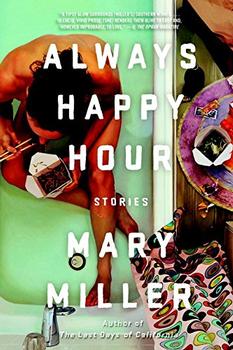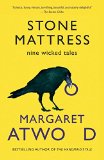Summary | Excerpt | Reviews | Beyond the book | Read-Alikes | Genres & Themes | Author Bio

Fiction
by Colum McCannColum McCann, author of six novels including TransAtlantic and Let the Great World Spin, has produced his third collection of short stories – or to be more precise, a novella and three short stories - in Thirteen Ways of Looking.
The book opens with the novella that gives the title to the whole collection: a 160-page story of a day in the life of Peter Mendelsohn, a retired New York City judge, struggling with the indignities of old age. "The years," he tells us, "don't so much arrive, they gatecrash, they breeze through the door and leave their devastation." Fortunately Mendelsohn brings humor to the burden of aging, calling his night diapers his "winter gear" and making declarations like: "Good God, I look like a pair of old curtains with a great big valance under my neck. A rubbery thing, could stretch to eternity."
His humor though, is tinged with sadness. Although the story is largely told by Mendelsohn, McCann's playful structure intertwines a subsequent police investigation into what happens to the old man - even though it has not yet happened in the story. The result is a back-and-forth narrative that manages to be beautifully written and literary, and yet also page-turning and dramatic. A great strength here is McCann's characterization: of Mendelsohn; his caregiver Sally; his unfeeling, unappealing son Elliot; and all the characters in the restaurant he visits. It is also a story that is self-consciously poetic. The title references Walter Stevens' poem, Thirteen Ways of Looking at a Blackbird (See Beyond the Book) and each short chapter is prefaced with a stanza from Stevens' famous poem. In addition to McCann's obvious talents for language and description, he directly compares the police investigators, poring over hours of video footage of Mendelsohn (from his home security system and cameras in the street), to poets looking for the right word, the perfect rhythm or line.
There are large themes at work in the whole collection – about surveillance, about the truth of the past, about perspective, about life, loss, aging, unprovoked violence and the art of fiction. In Sh'khol, McCann tells the story of a woman searching for her disabled son, whom she fears has drowned. "Sh'khol" is a Hebrew word for a parent who has lost a child, a word for which there is no direct translation in English, Irish, Russian, French or German. In Treaty, McCann's focus is on cameras and surveillance in a dark tale of a nun who tracks down a man who violently assaulted her years previously. And in What time is it now, Where are you? McCann dramatizes the act of story-telling itself, with a narrator tasked with writing a story and making decisions for his characters as he writes.
Both in his afterword and in recent interviews, McCann emphasizes the impact that being violently punched on the street by a stranger in 2014 has had on his life, and, in particular, on this book. He connects the stories in the collection around this event and therefore to his own life story, adding another fascinating layer to his beautifully written fiction.
![]() This review was originally published in The BookBrowse Review in November 2015, and has been updated for the
October 2016 edition.
Click here to go to this issue.
This review was originally published in The BookBrowse Review in November 2015, and has been updated for the
October 2016 edition.
Click here to go to this issue.

If you liked Thirteen Ways of Looking, try these:

by Mary Miller
Published 2018
Combining hard-edged prose and savage Southern charm, Mary Miller showcases biting contemporary talent at its best. In The Last Days of California, she now reaches new heights with this collection of shockingly relatable, ill-fated love stories.

by Margaret Atwood
Published 2015
Margaret Atwood turns to short fiction with nine tales of acute psychological insight and turbulent relationships.
Your guide toexceptional books
BookBrowse seeks out and recommends the best in contemporary fiction and nonfiction—books that not only engage and entertain but also deepen our understanding of ourselves and the world around us.